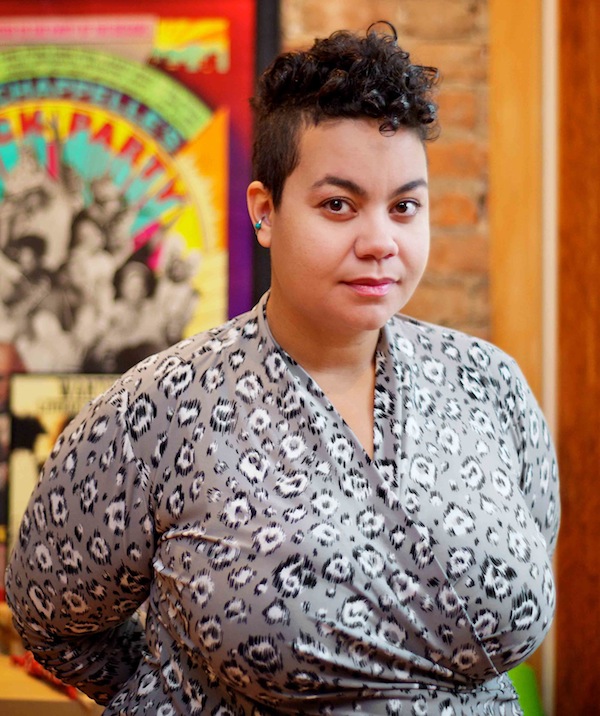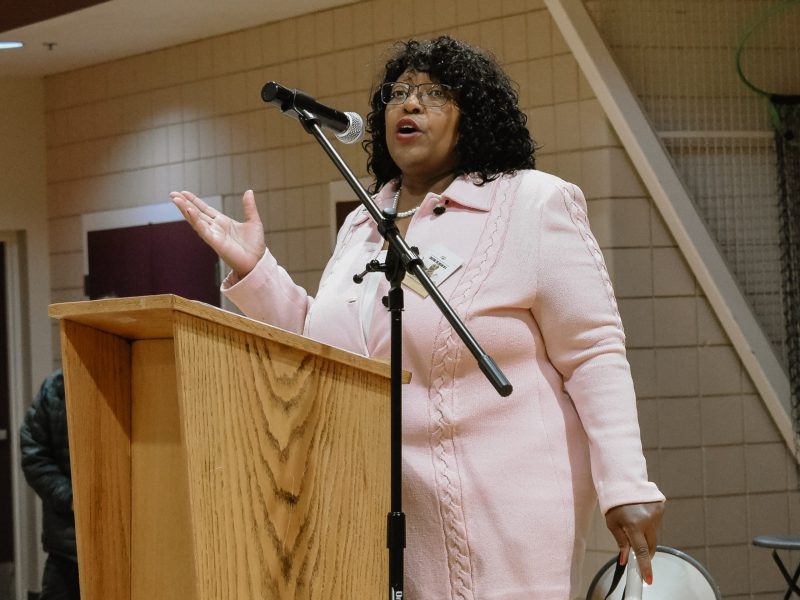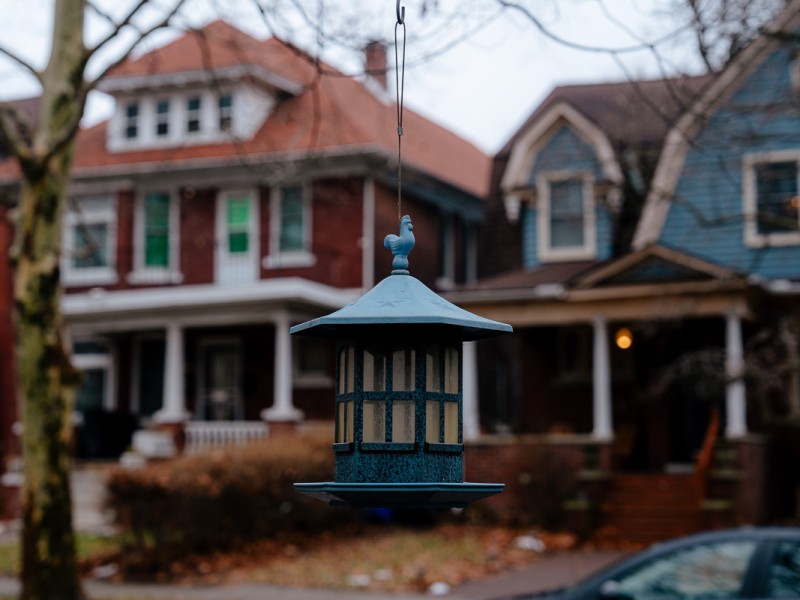Social activist works to create safe spaces for all
Her work healing progressive movements requires Adrienne Maree Brown to be everything from an organizational guru, to a facilitator, networker and life coach. Desiree Cooper profiles this month's LGBT leader of color.

You might say that Adrienne Maree Brown is an exorcist for social justice.
“I help social justice groups align themselves with their vision,” says the 33-year-old Detroit resident. “So much is wasted on small, petty things, or harboring bitterness, grief and trauma. I try to exorcise those feelings.”
Since her early 20s, Brown has worked on the ground floor of social movements in order to hone her skills. From 2006 to 2010, she was the executive director of The Ruckus Society, a California-based organization that trains activists in non-violent direct action.
“My role was moving Ruckus from a white, male organization to one that included more queer people and people of color,” she says.
She worked with a green building project in New York’s Hudson Valley, and eventually brought her skills to Detroit.
“I first met Adrienne when she was the host of the Allied Media Conference in 2008,” says Shea Howell, a community activist, and chair of the Department of Rhetoric, Communication & Journalism at Oakland University. “Adrienne provided the warm, loving welcome to Detroit (even though she had not yet moved here). It was clear she felt the Detroit pull.”
In 2006, Brown was invited to consult with Detroit Summer, a multi-racial, inter-generational collective that has been working to transform communities through youth leadership.
“I was so blown away by what they were doing and saying,” says Brown. “You have to transform yourself to transform the world. They were forging deep intergenerational relationships.”
“She started doing anti-oppression training with the participants but she quickly became an advisor to the collective,” says Howell, who is also a co-founder of Detroit Summer. “She has been a major force in guiding them into rethinking the role of Detroit Summer and its strategic vision — something she has helped a lot of organizations in the movement do.”
Through her work in Detroit, Brown met Invincible, the Detroit rapper who is now her same-sex partner. “My father used to say that he’d always dream I’d fall for someone like him,” says Brown. “Well, I have.”
Coming to terms with coming out
Brown is the daughter of a white mother and an African American father who served 30 years in the U.S. Army. Born in El Paso, Texas, she grew up in Germany, Georgia, New York and California.
“My father was raised in poverty in South Carolina; he joined the military to escape that,” says Brown, acknowledging the way racism, capitalism and militarism have intersected to impact her life. “Because of his choice, we had a good life.”
Although she experienced same-sex attraction early in life, “In the military environment, I don’t remember homosexuality being anywhere in my world,” she says. “It wasn’t possible.”
In her early teen years, Brown was sexually assaulted. After that, she went through “an asexual phase.” She attended Columbia University in New York to study African American Studies, political science and voice.
“After I left college, I started to ask who I am in my body,” says Brown. “I started wearing clothes that would draw attention to me. I dated effeminate men and men who were studs. But I didn’t do relationships. I focused on my work. I saw relationships as drama.”
Coming out to her nuclear family when she was in her 20s wasn’t difficult. “I told my mother the first time I slept with a woman,” Brown says. “I was never encouraged to silence myself.”
But she had to come to terms with her own internalized homophobia. “I thought if I was a lesbian, I would never have kids, etc.,” she says. “I had accepted what I’d been told it means to be gay, versus what it’s really like to be gay.”
Her maternal grandparents, however, were less than accepting.
“They were Southern Baptists,” says Brown. “They sent me scriptures to read. It just like it was when my mother came home with my dad. They were opposed to the interracial relationship as well.”
Her sisters came to her aid. “They told my grandparents that if I wasn’t welcome in their home, they weren’t coming either. About two years later, I had a powerful conversation with my grandfather. I told him I was a spiritual person doing holy work in the world. I made real peace before my grandfather passed.”
Spaces without compromise
When Brown began to date Invincible five years ago, she not only fell in love with a Detroiter, she also fell in love with Detroit. While her organizational consulting takes her nationwide, her home base is Detroit’s Cass Corridor, working closely with groups like the Food Justice Task Force and the East Michigan Environmental Council. In 2010, she was a co-host for the U.S. Social Forum that brought thousands of progressive activists to the city.
“She continues to be a force with Detroit Summer,” says Howell. “Everything from dinners at her home, to running weekend long retreats where, as she says, she creates and holds the space, so that people can bring their best selves to deciding what needs to be done.”
“The way I work is being 100 percent myself,” says Brown. “I come in as a bisexual, biracial woman everywhere I go. My work tends to be cross-constituency. I support queer people at the intersection of poverty, race and ability.”
Although she is bisexual, Brown does very little work exclusively within the LGBTQ community.
“The evolutionary goal is to live openly in all spaces without compromise. Once you can be open about one thing, you can open the gate to other things. That’s how new kinds of families, traditions and ideas can emerge. One of the biggest mistakes we make as a society is trying to pull the conversations apart, as if racism isn’t related to sexism which isn’t related to homophobia,” she says.
“I don’t want gay to be so normal no one ever notices it.”
Desiree Cooper is a freelance writer and editor. Her story first appeared in Between the Lines.




